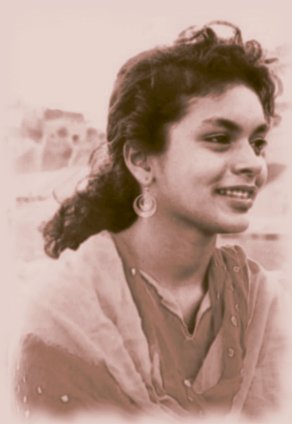Ritu Sinha Knowledge Centre for Creative Learning
A Living Lab for Creativity, Community, and Change
Genesis
The Ritu Sinha Knowledge Centre for Creative Learning (RSKCCL), located at the School of Creative Learning in Patna, is a vibrant hub for cultivating creative minds, preserving knowledge, and sparking innovation across generations. It was established in loving memory of Ritu Sinha, J.D. (1966–2000) — a Columbia graduate and Boston-based attorney—through the generous support of the Ritu Sinha Charitable Foundation (New York, USA).
Rooted in the belief that creativity should not be limited by class, age, or ability, RSKCCL functions as a multi-dimensional resource center—bridging tradition and technology, grassroots learning and digital knowledge, and intergenerational wisdom with child-led exploration.

RSKCCL Offerings
Knowledge Repositories & Digital Archives
Thematic Libraries for All Ages
Computer & Digital Access Hub
- Digitized collections of teaching-learning materials, folk arts, research, and case studies
- Indexing, cataloguing, and full-text searchable archives
- A growing intranet & web-based digital library accessible through on-campus servers
- For Learners: Project support, reading for joy, creative writing, current events
- For Teachers: Lesson planning, classroom innovation, resource recommendations
- For Researchers: Curriculum design, inclusive pedagogy, case study access
- For Elders: Quiet reading, life reflection, storytelling circles with children
- Multimedia stations (CD-ROM, DVDs, internet research)
- In-house data warehouse to host and retrieve full-length digitized books and resources
- Digital skill-building courses for students and community members
Activities and Services
- Textbook Bank: Lending support for students from low-income families
- Reference Assistance: Personalized help finding materials and research guidance
- Workshops: Skill-building in speed reading, book reviews, creative writing, calligraphy
- Child-Run Magazine: Published by learners; celebrates community voices
- Learning Exhibitions: Interactive displays of educational tools from across India
- Scanning, Printing & Reprography: Available for research and learning use
- Map & Case Study Sections: Specialized reference areas for deeper inquiry
Objectives
- Maintain and expand curated digital and physical knowledge repositories
- Catalog and index resources for accessibility across languages, subjects, and age groups
- Connect knowledge seekers with knowledge holders—students with mentors, teachers with tools, and peers with peers
- Serve as a “one-stop knowledge hub” for creative learning resources, training, and community innovation
- Promote access, equity, and lifelong learning through grassroots knowledge sharing
Conference and Collaboration Space
RSKCCL houses dedicated conference facilities for:
- Educator trainings
- Curriculum creation sessions
- Community discussions
- Exhibitions and collaborative forums
These spaces are equipped with presentation tools and designed to promote open dialogue and ideation.
Looking Ahead - The Next Chapter
As we expand the RSKCCL vision, APCL is actively seeking strategic partners to co-create two transformative additions:
- A Health & Wellness Centre that links learning with well-being for all students
- A Residential Hostel offering safe, nurturing accommodation for rural and displaced learners
These developments will ensure that the power of knowledge is supported by the safety, health, and dignity every learner deserves.
Join the Movement
We welcome educators, institutions, donors, volunteers, and visionaries to collaborate with us in advancing the mission of RSKCCL. Together, we can ensure that the light of creative knowledge reaches every corner of society—across castes, classrooms, and continents.
Location: School of Creative Learning, Patna
Contact: apclpatna@gmail.com
Website: creativelearning.in
Latest News
International Yoga Day at School of Creative Learning
SCL awarded ATL School of the Month in April 2025
Health Camp Organized in School to Identify Kidney-Related Diseases
Srijanotsav 2025 – Innovation and Math Fair Organized at School of Creative Learning
Sports Event Celebrated at SCL
स्कूल ऑफ क्रिएटिव लर्निंग के छात्रों ने इंस्पायर अवार्ड्स मानक 2024-25 में बनाई पहचान
Four Students from School of Creative Learning Selected for INSPIRE Awards 2024-25!
Learners from SCL secured Top Ranks in Srinivasa Ramanujan Talent Search in Mathematics 2024 conducted by Bihar Council on Science and Technology
SCL selected by Bihar Department of Education & NCERT for Science and Maths
Congrats Rishu Kumar for being awarded the First Prize in “Innovate and Illuminate” organised by CIMP
